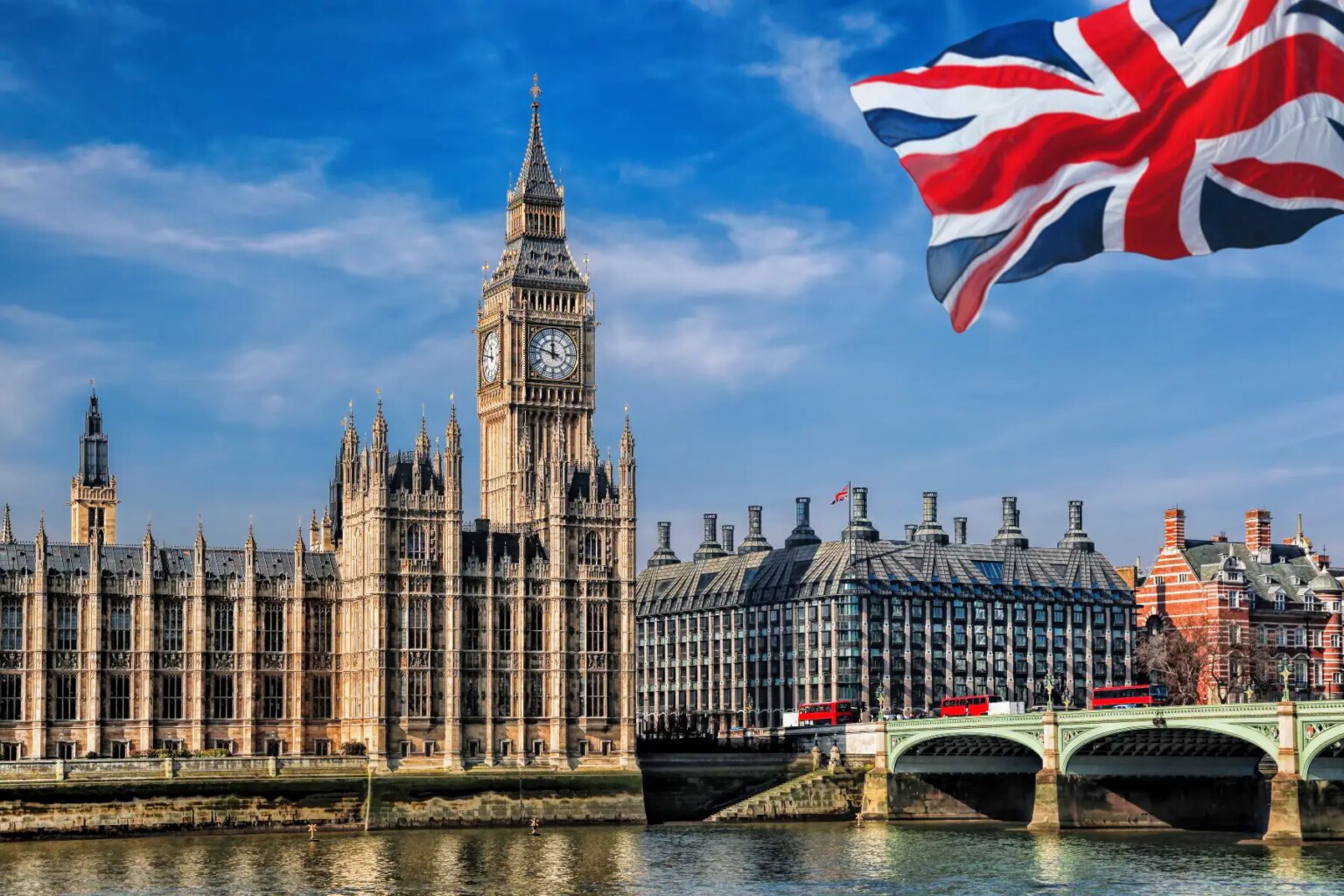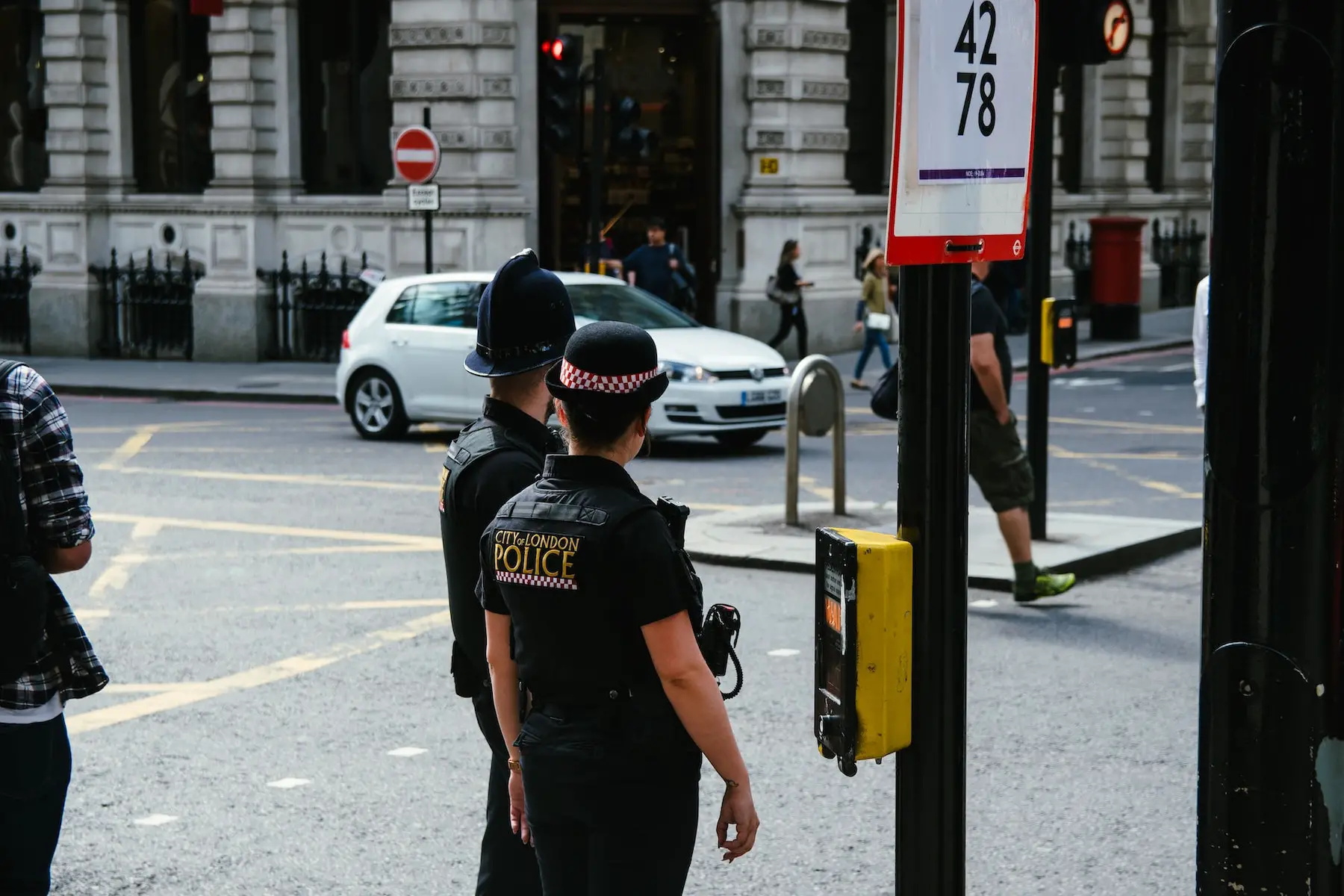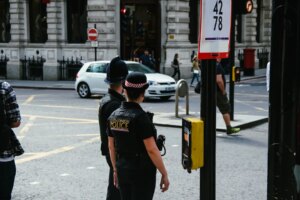Politics in the UK can seem confusing at first glance. Although there is a British government that holds centralized executive power, there are also devolved governments in the constituent nations of Scotland, Wales, and Northern Ireland. They determine policy in many areas including healthcare, education, and transport.
This guide takes you through the key features of politics and government in the UK to help give you a better understanding of things if you relocate to any part of the UK. Sections include:
- Government and political system in the UK
- The British Prime Minister: who is currently in power in the UK?
- Main political parties in the UK
- The electoral system in the UK
- Voting in the UK
- Political representation in the UK
- The political history of the UK
- Judiciary system in the UK
- Political tensions in the UK
- The UK and the European Union/EEA
- The state of the economy in the UK
- Grassroots politics and political activism in the UK
- Useful resources
Ground News
Get every side of the story with Ground News, the biggest source for breaking news around the world. This news aggregator lets you compare reporting on the same stories. Use data-driven media bias ratings to uncover political leanings and get the full picture. Stay informed on stories that matter with Ground News.
Government and political system in the UK
The UK is a constitutional monarchy, similar to countries such as Spain, the Netherlands, Japan, and the United Arab Emirates. This means that a monarch acts as Head of State. Since of the passing of Queen Elizabeth II on 8 September 2022, the current monarch is King Charles III. The UK is a parliamentary democracy where the elected British Government, the head of which is the Prime Minister, holds executive power.
Two chambers exercise legislative power: the lower chamber – the House of Commons – made up of 650 elected regional Members of Parliament (MP); and the upper chamber – the House of Lords – made up of a mixture of appointed and hereditary peers. Unlike with elected MPs, the number of members in the House of Lords is not fixed. Currently there around 800 members from across the parties, as well as non-affiliated members.

Although the British government has central power, a certain amount of political power has been devolved to the regional governments in Scotland, Wales, and Northern Ireland. Both Scotland and Wales established their own devolved parliaments in 1999. Northern Ireland has had its own devolved assembly since 1972.
The UK runs a first-past-the-post (FPTP) electoral system with elections every five years. It ranked 20th in the 2023 Economist Democracy Index.
The British Prime Minister: who is currently in power in the UK?
The leader of the Labour Party, Sir Keir Starmer, is Prime Minister of the UK. Starmer has held this position since July 2024 when the Labour Party won a majority in the General Election
Keir Starmer has been the leader of the Labour Party since April 2020 and MP for Holborn and St Pancras since 2015.

Although the UK Prime Minister is the head of central government, Scotland, Wales, and Northern Ireland have their own heads of government called First Ministers. These are leaders or representatives of the parties with the most seats in government. John Swinney, leader of the Scottish National Party, has been First Minister of Scotland since May 2024. Vaughan Gething, leader of Welsh Labour, has been First Minister of Wales since March 2024.
Northern Ireland has joint heads of government under the terms of the Good Friday Agreement. Michelle O’Neill of Sinn Féin has been First Minister since 2024. Emma Little-Pengelly of the Democratic Unionist Party (DUP) has been Deputy First Minister since February 2024.
The next UK General Election is due to take place before July 2029. Politico provides information on opinion polls.
Main political parties in the UK
There are currently 13 political parties with seats in the House of Commons. Below is a brief overview of each one.
Labour Party
The Labour Party is the current party in power in the UK, with 411 seats in parliament. It has had six periods in power since 1923, the last one from 1997–2010. The party was founded in 1900 out of a coalition between trade unionists and socialists
Until the 1980s, Labour’s ideology was along traditional democratic socialist lines. Its periods in power were characterized by Keynesian economics, high taxation, and a strong publicly-owned welfare state. Since the mid-1980s it has become more centrist, culminating in the rebranding of the party as New Labour and the embracing of Third Way politics in the 1990s. Under Jeremy Corbyn, the party returned to a more traditional socialist approach between 2015 and 2020. In the 2019 election, the party won 202 seats and 32.1% of the vote. Keir Starmer, leader since April 2020, has attempted to shift the party back towards the center ground.
Labour has traditionally been more socially progressive in areas such as worker rights, LGBT rights, gender equality, and immigration policies. It has also been mostly pro-Europe, with the majority of its MPs voting against Brexit. Traditionally it has held support among working-class and socially liberal voters, although its working-class base has diminished recently.
Conservative Party
Also known as the Tory Party, the Conservative Party was founded in 1834. It has been one of the dominant forces in British politics since the 19th century. The party was last in power from 2010–2024 and currently holds 121 parliamentary seats in Westminster.
The party has historically been similar in ideology to conservative parties in many other countries. Since the late 1970s, it has favored small government and liberal free-market economic policies. Traditionally socially conservative, in recent years it has become more socially liberal in certain areas such as LGBT rights, legalizing same-sex marriage in 2014. There are some tensions within the party between socially liberal and socially conservative elements. Additionally, there are ongoing divisions over Europe and Brexit.
The party primarily holds support among middle-class voters, especially in rural and suburban areas. However, its 2019 election victory was notable for its success among traditionally Labour-supporting working-class voters in northern England.
The current leader of the Conservative party is the former Prime Minister, Rishi Sunak.
Liberal Democrat Party
Commonly referred to as the Lib Dems, the Liberal Democrats were founded in 1988 out of a merger between the Liberal Party and the Social Democratic Party – two parties that had been in an alliance since 1981.
The party’s ideology is a mix of traditional liberalism and social democracy. It favors a market-based economy, supported by a strong welfare state. It also supports civil liberties, LGBT rights, European integration, and a shift to proportional representation voting.
Although the Liberals were a strong force in UK politics in the 19th and early 20th centuries, and the party formed a coalition government with the Conservatives between 2010 and 2015, the popularity of the Lib Dems has waned dramatically since. They currently have 72 MPs, up from 11 in 2019. Their support tends to be among university-educated voters in southwest England and parts of London and Scotland. Ed Davey has been the party’s leader since August 2020.
Scottish National Party (SNP)
The SNP is a Scottish political party that campaigns on a platform of Scottish independence. Its popularity has varied in recent years – in 2014, it lost the Scottish independence referendum. Although it was the third-largest party in terms of parliamentary seats in the UK from 2015–2024, it now only holds nine seats.
The SNP was founded in 1934. It is socially democratic in its ideological outlook as well as being socially liberal, supporting policies such as LGBT rights, multiculturalism, and gender equality. The party is also pro-Europe and campaigned against Brexit.
The current party leader is the First Minister of Scotland, John Swinney.
Reform UK
Reform UK was founded in November 2018 as the Brexit Party, changing its name to Reform UK in 2021. This right-wing populist party runs on a platform of reducing immigration, lowering taxes, and opposing environmental initiatives.
In the 2024 General Election, it won five seats. Its current leader is Nigel Farage.
Democratic Unionist Party (DUP)
The DUP is an Irish political party that is the second-biggest party in the Northern Ireland Assembly in terms of seats (24 out of 90). It shares assembly leadership with Sinn Fein. Founded in 1971, the party is unionist, loyalist, and socially conservative, opposing things such as abortion and same-sex marriage. It also supports Brexit.
The DUP formed a coalition government with Theresa May’s Conservatives from 2017 to 2019. It currently holds five out of 18 available seats in Westminster.
Sinn Féin
Sinn Féin (meaning “We Ourselves” in Irish) is an Irish political party founded in 1905 when the whole of Ireland was under British rule. It is active in both Northern Ireland and the Republic of Ireland, with the current form of the party in operation since 1970.
Whereas the DUP is loyalist, Sinn Féin is Irish Republican and supports the reunification of an independent Irish state. It is also broadly democratic socialist, socially progressive, and supported the UK remaining part of the EU. It holds seven seats in the UK parliament (although it abstains from taking its seats) and 27 in the Northern Ireland Assembly. Mary Lou McDonald is the current President of the party.
Green Party
The Green Party is a political party in England and Wales. Similar to green political movements elsewhere, the party is associated with environmentalism and sustainability. In the UK, the party also supports social-democratic economic policies, civil liberties, animal rights, grassroots democratic participation, and EU membership. The Green Party supports more radical progressive policies than most other mainstream parties, such as a universal basic income. In the 2024 General Election, they gained four seats in Parliament.
The Green Party was founded in 1990. It has joint leaders, Carla Denyer (MP for Bristol Central) and Adrian Ramsay (MP for Waveney Valley). Its support is strongest among university-educated people in metropolitan areas.
Plaid Cymru
Plaid Cymru, also known as the Party of Wales, is a Welsh nationalist, social democratic, and pro-European party that advocates a Welsh independent state. Formed in 1925, it currently holds four out of 40 Welsh seats in the UK Parliament as well as 12 out of 60 seats in the Welsh Assembly (the Senedd). Rhun ap Iorwerth has been the party leader since 2023.
Other parties
Other parties in the UK Parliament include:
- Social Democratic and Labour Party (SDLP) – two seats
- Alliance Party of Northern Ireland – one seat
- Ulster Unionist Party – one seat
- Traditional Unionist Voice – one seat
There are also six independent MPs representing various constituencies, including former Labour Leader Jeremy Corbyn (MP for Islington North).
The electoral system in the UK
The UK uses different electoral systems for different types of elections. For general elections, where MPs representing 650 regional constituencies across the UK are elected to the House of Commons, the first-past-the-post (FPTP) system is used. Each party can put one candidate forward in each constituency (independents can also stand).
The party with the most winning candidates forms a majority government if they win over 50% of the seats, otherwise, they can form a coalition government with other parties to take them over 50% or form a minority government. The leader of the winning party becomes Prime Minister and appoints a Cabinet of Ministers to head the different government departments (health, education, defense, etc.). There are currently 24 ministerial departments and 20 non-ministerial departments.
General elections in the UK take place every five years, although the British government can call an early election if they get a two-thirds majority vote on doing so in the House of Commons.
In addition to UK general elections, there are:
- Scottish and Welsh parliamentary elections, held every five years, where voters choose MPs using the Additional Member System (AMS) form of proportional representation.
- Northern Ireland Assembly elections, held every five years, where voters elect assembly members using the Single Transferable Vote (STV) form of proportional representation.
- Local elections, held every four years, where voters elect local councilors. England and Wales use the FPTP system, while Scotland and Northern Ireland use STV.
- Mayoral elections, held in London and some parts of England, where voters elect a local mayor using the Supplementary Vote system.
Voting in the UK
The legal voting age in the UK is 18, apart from in Scottish and Welsh parliamentary elections where it is 16. For the UK general election, you must also be a British, Irish, or Commonwealth citizen and have a registered UK address (or be a British citizen living abroad who has been registered to vote in the UK in the last 15 years).
Other UK residents, such as EU citizens or foreigners with a right to reside in the UK, can vote in local elections and Scottish elections. Prisoners and anyone found guilty of electoral fraud in the last five years cannot vote.
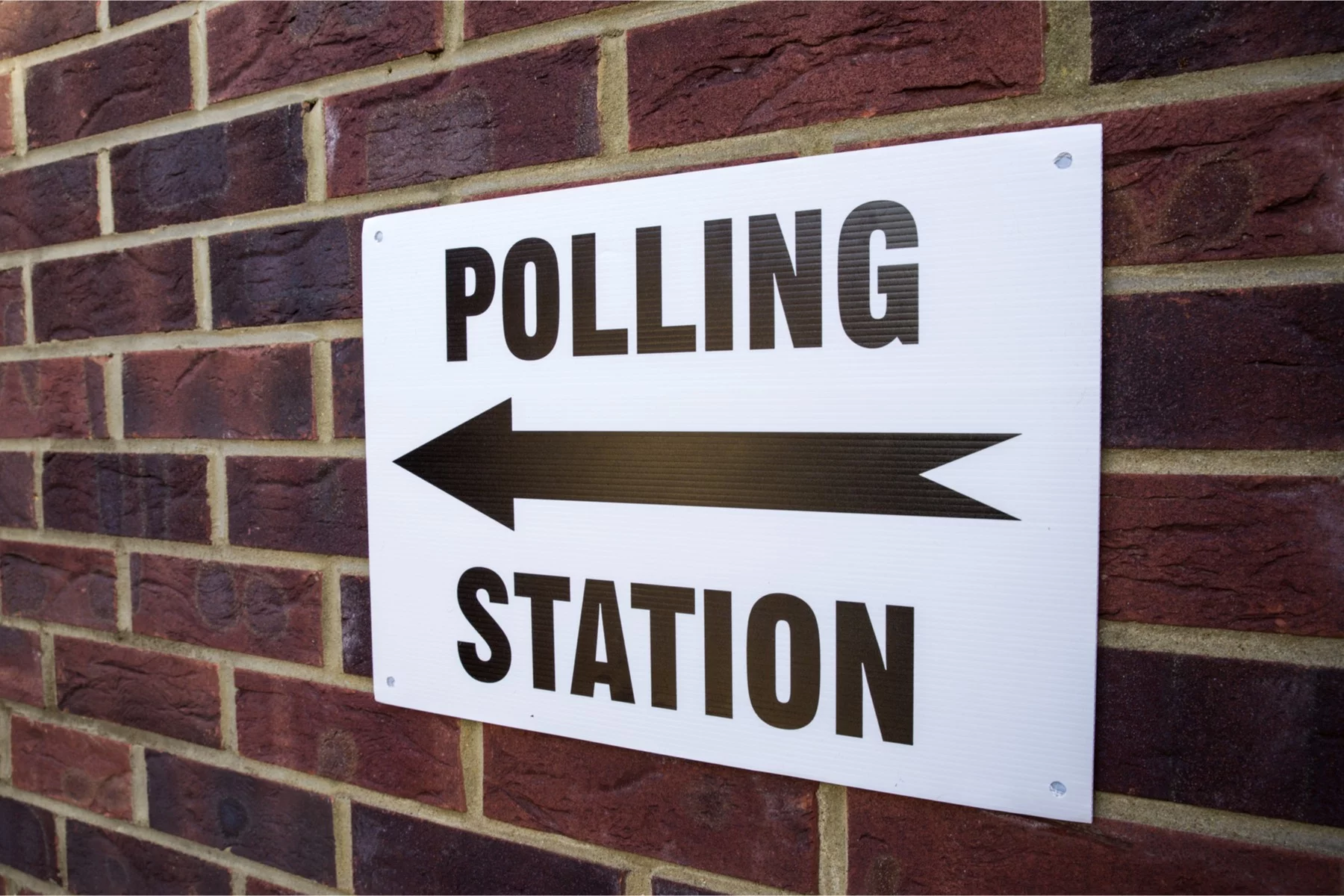
To be able to vote in any UK election, you must register to vote. This means that your name will be on the electoral register. On voting day, you just need to turn up at your local polling station (usually a public space such as a community center or primary school) and give your name. You can find out how to register to vote here.
Political representation in the UK
To stand as a candidate in a UK general election, you must be at least 18 years old and a citizen of either the UK, Ireland, or a Commonwealth country that has a right to reside in the UK. Certain groups are disqualified from standing, including members of the police or armed forces, civil servants, and people with bankruptcy restrictions.
EU citizens cannot become MPs unless they also have UK citizenship, however, they can stand to become a local councilor in local elections.
According to a 2023 report on political and public representation in the UK, residents from ethnic minorities are slightly underrepresented in parliament, although things are improving. The report found that 10% of MPs and 6% of members of the House of Lords are from minority backgrounds, compared to 16% in the overall UK population. The situation is similar in the constituent parliaments and assemblies, as well as in the London Assembly.
Another report from March 2024 found that women are also still underrepresented. Thirty-five percent of MPs and 29% of Lords are female. Elsewhere, the situation ranges from 43% female members in the Welsh Parliament to 37% in the Northern Ireland Assembly. Concerning senior-level positions, 46% of cabinet ministers are women.
The political history of the UK
The Parliament of Great Britain formed in 1707 following the Acts of the Union, which brought together the three countries of Great Britain – England, Scotland, and Wales. Following the British colonization of Ireland, the United Kingdom of Great Britain and Ireland formed in 1801. Britain ceded control of Southern Ireland (the Republic of Ireland) in 1922, and the UK became the United Kingdom of Great Britain and Northern Ireland which remains its full title today.
Since its creation, the UK has had a functioning democracy. Only two parties formed governments until 1923 – the Conservatives and the Liberals (who were the Whigs until the mid-19th century). Since 1923, only the Conservatives and Labour have been in power. Universal suffrage was in 1918 for men and 1928 for women.
Other than devolution in Northern Ireland, Scotland, and Wales, the key events that have impacted the UK’s political system since World War Two have been:
- The development of the modern welfare state, including the NHS, in the years immediately following 1945. This gave the government a far greater role in areas such as healthcare, education, and social security.
- Decolonization and the decline of the British Empire after 1945. The UK had established colonial rule in many overseas countries during the 18th, 19th, and early 20th centuries. By the 1970s, most of these countries had won independence. Over 50 of these countries are today members of the Commonwealth of Nations.
- Joining the European Communities (now the EU) in 1973 and then subsequently voting to leave in the 2016 Brexit referendum vote.
Judiciary system in the UK
The UK has three separate legal systems: one for England and Wales, one for Scotland, and one for Northern Ireland. However, judges in some of the highest-level courts, such as the Supreme Court, have UK-wide jurisdiction.
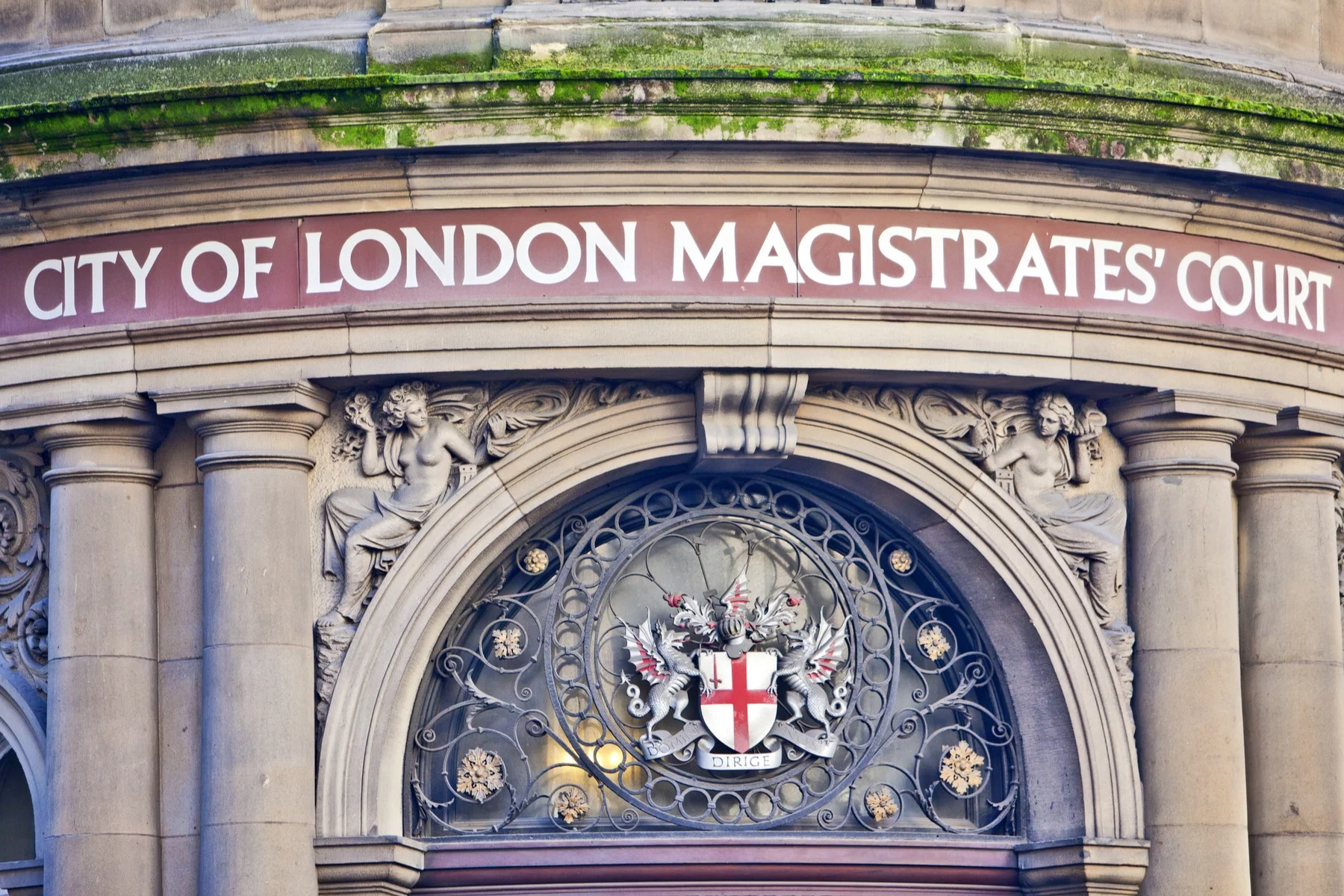
Similar to many other countries, the UK justice system is one of three branches of the state. The other two are the executive (the British government) and the legislative (the two Parliamentary chambers). Where the UK differs from most other countries is that it doesn’t have a written constitution. Therefore, its laws have grown out of centuries of statutes passed by Parliament and the common law of court decisions.
Until the end of the 19th century, there wasn’t a clear separation between the judicial branch and other state branches in the UK. In other words, judges could become MPs or even Cabinet members.
The court system in the UK is complex but essentially there are three main types:
- Magistrates’ courts, which deal with most civil cases and less serious cases
- Senior Courts, which include the Crown Court, the High Court and the Court of Appeal. These deal with more serious criminal cases, any cases referred by magistrates’ courts, and (in the case of the Court of Appeal) appeals from other courts
- Supreme Court, which is the final court of appeal for all civil and criminal cases
The tribunal system has its own structure for dealing with administrative cases and appeals. Decisions can escalate to the Court of Appeal.
Political tensions in the UK
Arguably the issue that dominated British politics in the previous decade was Brexit, the UK’s departure from the European Union (EU). The UK voted to join the EU in 1973, but eurosceptic members of the Conservative Party and the United Kingdom Independence Party (UKIP) pressed for a referendum on membership. In 2014, UKIP won the European Elections, and the Conservative Party pledged to hold a referendum if they won an outright majority in the 2015 UK General Election.
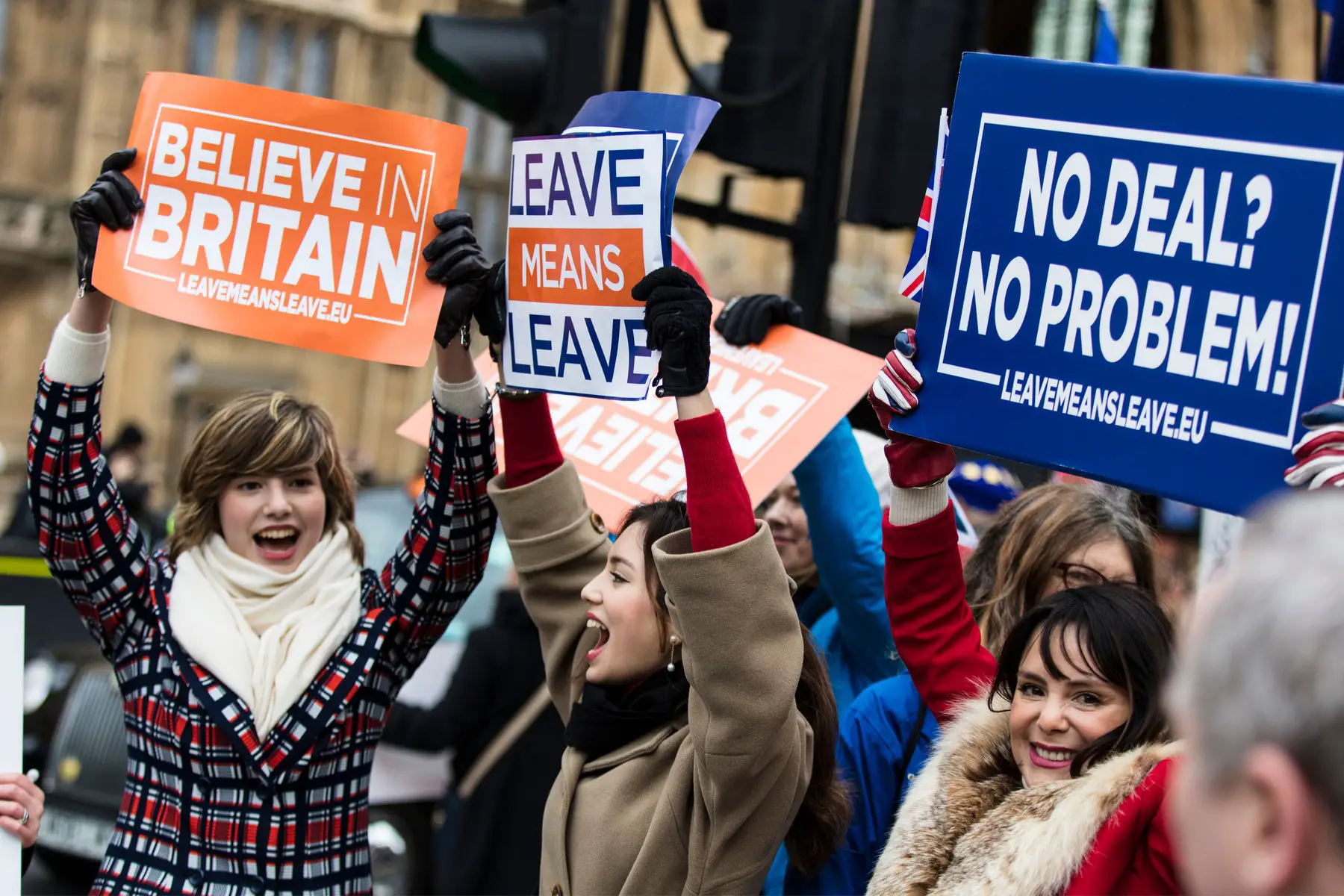
Although the UK was predicted to vote to remain in the EU, and the Conservatives campaigned on a remain platform, the country voted to leave the union by 52% to 48% on 23 June 2016. The UK finally left the EU on 31 December 2020 after a short transition period. The Brexit issue has stoked up tensions among the British public and has also inflamed anti-immigrant sentiments in the UK. Just one week before the referendum vote, Labour MP Jo Cox was murdered on the streets of Yorkshire by a far-right terrorist shouting “keep Britain independent.”
Recent major scandals in UK politics include the Conservative Government’s handling of the COVID-19 pandemic, including its response to the pandemic itself, the unlawful awarding of contracts, and senior government ministers failing to adhere to Covid rules. More recent political tensions have been caused by the former government’s immigration policies, including sending refugees to Rwanda, and the election betting scandal.
The UK and the European Union/EEA
The UK narrowly voted to leave the EU in a 2016 referendum. It was the first member country to do so and is now one of only a handful of countries worldwide not to belong to a regional trading bloc. The UK officially left the EU on 31 December 2020 with a withdrawal agreement in place.
The UK is now treated as a non-member country by EU/EFTA countries, thus UK citizens are now subject to the same visa restrictions and barriers to accessing many public services in member states as many other third-country nationals. Similarly, EU/EFTA citizens no longer have freedom of movement or equal rights to access many services in the UK. Citizens from the EU/EFTA who have been living long-term in the UK and want to stay had to apply to the EU Settlement Scheme.
Although the UK voted to leave the EU, both Scotland and Northern Ireland had majority votes for remain. Some political parties pledge to try to rejoin the bloc.
The state of the economy in the UK
The UK has a highly developed social market economy. It had a gross domestic product (GDP) of US$4.03 trillion in 2023, which works out to a GDP per capita of US$58,906 when adjusted for purchasing power parity. Service sector businesses account for around 81% of GDP, with financial services being particularly strong.
As with many economies across the world, the UK economy was hit hard by the COVID-19 crisis. The OECD Economic Forecast Summary (August 2022) suggests that although the economy has recovered, progress is slowing due to supply shortages and rising inflation.
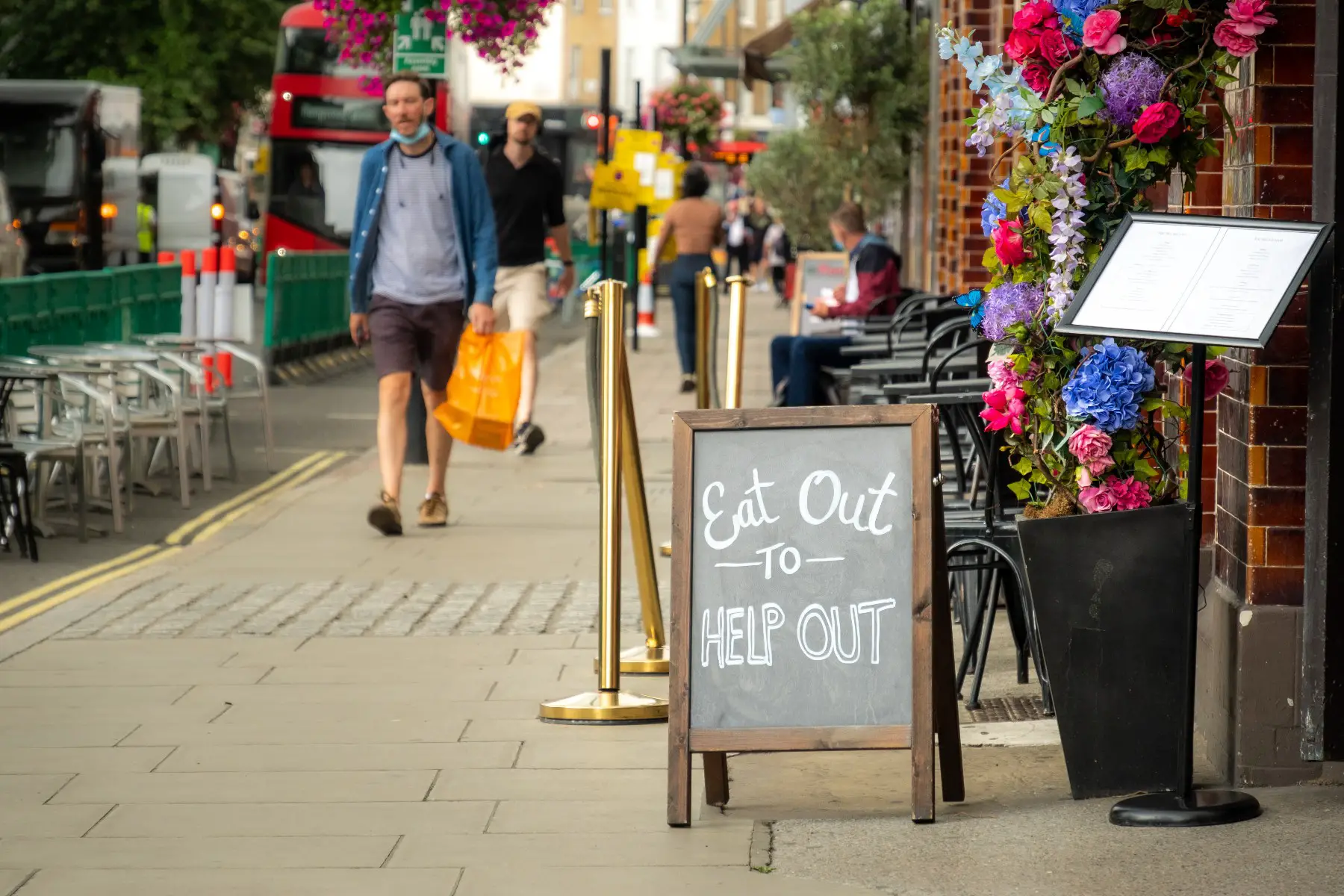
Due to rising inflation rates between 2021 and 2023, many people across the UK have been struggling with the cost of living. Food and energy prices have increased particularly rapidly, and most political parties addressed these in their manifestoes for the 2024 General Election.
Unemployment, currently at 4.4%, has risen in the past year.
Grassroots politics and political activism in the UK
The UK probably doesn’t have the same culture of direct action politics as you see in countries such as Spain and France. However, there have been movements throughout history that have left their mark, from the Chartists in the 1830s to the Campaign for Nuclear Disarmament (CND) in the 1980s.
More recently, two environmental groups, Extinction Rebellion UK and Just Stop Oil have become well-known activist groups in the past few years. They have drawn attention to the climate emergency through disruptive, non-violent protests, such as blocking roads and throwing orange cornflour onto stones at Stonehenge.
Anyone can get involved in local politics or a political/social cause important to them in the UK. One way is to volunteer for a UK-based charity. You can search for active organizations in the charity directory. Another way is to engage with what’s going on in your local area. This could be anything from attending neighborhood meetings to becoming a councilor. Check for different ways of getting involved on the government website.
Useful resources
- gov.uk – UK government website with information on services, departments, and more
- UK Parliament – information on parliament and MPs
- Scottish Government
- gov.wales
- Northern Ireland Government
- Electoral Commission – information on UK politics and how to vote
